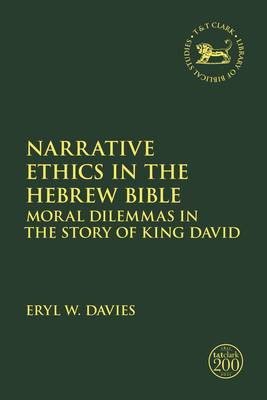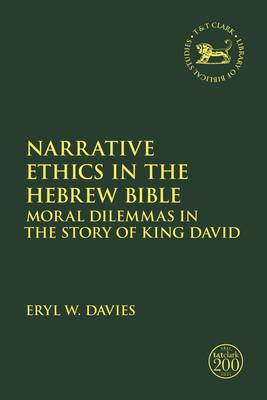
- Afhalen na 1 uur in een winkel met voorraad
- Gratis thuislevering in België vanaf € 30
- Ruim aanbod met 7 miljoen producten
- Afhalen na 1 uur in een winkel met voorraad
- Gratis thuislevering in België vanaf € 30
- Ruim aanbod met 7 miljoen producten
Zoeken
€ 69,45
+ 138 punten
Omschrijving
How can the stories of the Hebrew Bible be read for their ethical value? Eryl W. Davies uses the narratives of King David in order to explore this, basing his argument on Martha Nussbaum's notion that a sensitive and informed commentary can unpack the complexity of fictional accounts. Davies discusses David and Michal in 1 Sam. 19:11-17; David and Jonathan in 1 Sam. 20; David and Bathsheba in 2 Sam. 11; Nathan's parable in 2 Sam. 12; and the rape of Tamar in 2 Sam. 13.
By examining these narratives, Davies shows that a fruitful and constructive dialogue is possible between biblical ethics and modern philosophy. He also emphasizes the ethical accountability of biblical scholars and their responsibility to evaluate the moral teaching that the biblical narratives have to offer.Specificaties
Betrokkenen
- Auteur(s):
- Uitgeverij:
Inhoud
- Aantal bladzijden:
- 208
- Taal:
- Engels
- Reeks:
Eigenschappen
- Productcode (EAN):
- 9780567699664
- Verschijningsdatum:
- 23/03/2023
- Uitvoering:
- Paperback
- Formaat:
- Trade paperback (VS)
- Afmetingen:
- 156 mm x 234 mm
- Gewicht:
- 299 g

Alleen bij Standaard Boekhandel
+ 138 punten op je klantenkaart van Standaard Boekhandel
Beoordelingen
We publiceren alleen reviews die voldoen aan de voorwaarden voor reviews. Bekijk onze voorwaarden voor reviews.








